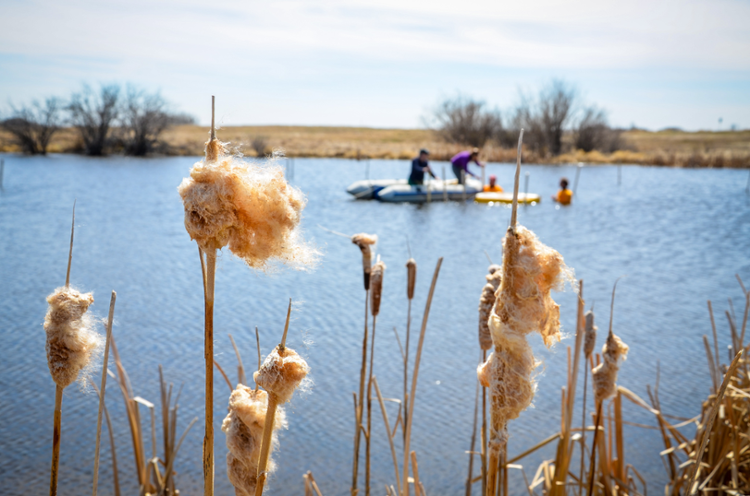
U of S offers new master's of water security
The Master of Water Security will train students to examine concerns such as drought, climate change, flooding and water quality using a holistic approach that incorporates not only the sciences, but also the study of social dynamics and public policy.
Media Release - September 10, 2015
The U of S is set to launch a new master’s degree in water security—the first of its kind in North America—that will provide students with the expertise to tackle complex issues concerning water availability and quality.
“The Master of Water Security will train students to examine concerns such as drought, climate change, flooding and water quality using a holistic approach that incorporates not only the sciences, but also the study of social dynamics and public policy,” said Andrew Ireson, the program’s director and an assistant professor in the School of Environment and Sustainability (SENS) at the U of S. “We saw a gap in current training that could be addressed with our university’s strong expertise in interdisciplinary water research.”
The Master of Water Security (MWS) program is a project-based and professional-style master’s degree that trains students to investigate water security issues of regional, national and international significance. The program is offered through SENS.
“Certainly this summer of drought, wildfires and algal blooms in our province has brought water concerns to the forefront, and a realization that our struggles are likely to continue with climate change,” said Toddi Steelman, executive director of SENS. “The MWS provides graduates with the tools to tackle the complex problems we are increasingly faced with.”
Incoming students will choose among three specialized tracks: hydrology, hydrogeology and socio-hydrology. While the first two tracks study the surface water and the groundwater cycles respectively, socio-hydrology studies the dynamics between human use, control, value and culture related to water and its place in the global community.
“Having three specializations allows us to provide in-depth training in one area of water, such as groundwater, while also having students participate in core courses that broaden their knowledge of other aspects of water management, current global issues and how we plan in an age of climate uncertainty,” said Ireson.
Graduates will be ready to become water scientists, managers and policy-makers in the consulting and government sectors. The first intake of students will begin September 2016, with applications accepted until mid-January.
-30-
For more information on the MWS program, please visit the School of Environment and Sustainability website.
